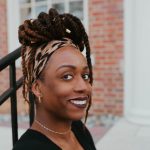Applying Encanto
I was struck by the movie’s relevancy for Christians. Specifically, I think it reminds us of a few truths regarding the work we do in daily lives, our spiritual gifts, and our identities.
Work does not define who we are.
In the film, Luisa struggles with her identity because even though she is the strong one, she sometimes feels weak. She sings, “I’m pretty sure I’m worthless if I can’t be of service” and “Who am I if I can’t carry it.” We all, like Luisa, tend to form our identity around our work because of the relationship between who we are and the work we do. What we desire and want is often shaped by our mind, will, passions, and bodies, and we use paid and unpaid work as a means to fulfill those need and desires. For example, some men define manliness as making more money than their wives and so they work hard to prove their manhood.
By using work to satisfy our needs and desires, our work becomes intertwined with the deepest parts of who we are. Work becomes an expression of who we are and soon it becomes our identity. When we see ourselves as what we do, when work gets hard or we fail, we question who we are. We must remember our work is a medium to express who we are and not the essence of who we are. We must realize we are more than what we do.
We are not our spiritual gifts, and all our gifts are invaluable.
In Encanto, Mirabel was viewed as an un–special by her community and of little value to the mission because she had no gift. Similarly, we often determine if we belong to the body of Christ, our value, and others’ value based on gifts. In 1 Corinthians 12, Paul uses metaphorical body language to explain spiritual gifts. One body part he mentions is the ear. Paul separates the identity of the ear from its hearing function, which implies that the ear is not the gift but hearing is. Thus, the ear’s identity is not based on hearing; it remains an ear whether it hears a lot or little.
Paul also deals with gift envy and valuing certain gifts more (or less) than others. In today’s Christian celebrity culture, for example, we are tempted to see ourselves as lesser Christians because our gifts don’t seem as great or impactful as others. However, all gifts are valuable even when we are not recognized as spiritual “giants” (I Corinthians 12:23-25), and as Christians we need not value some more than others because of their gifts. Like Mirabel, we should not doubt our place in the family because of the manifestation of a gift. Even if our gifts are not considered grand or seem to not exist, we are still in the family.
Our spiritual gifts make us servants not saviors.
After Mirabel witnesses the cracking of the casita, she tells her Abuela Alma. Later, Alma asks her late husband Pedro to help her save the miracle. At that moment, Mirabel decides she will save the miracle. Mirabel goes from trying to serve her family to trying to save her family because she loves them. Like Mirabel, we often start out with a desire to serve our families, churches, and communities. Soon, our love motivates us to try to save them. Many of us grieve over not doing enough to save our loved ones, not doing enough to keep our loved ones from hurt or pain, or committing parenting mistakes that might hinder our children’s salvation. While admirable, we must remember that we are called to serve, not save. Jesus was the only human who was and is able to both serve and save humanity.
So watch Encanto! It is a must see and a call to reconsider who we are.




No comments have been added.